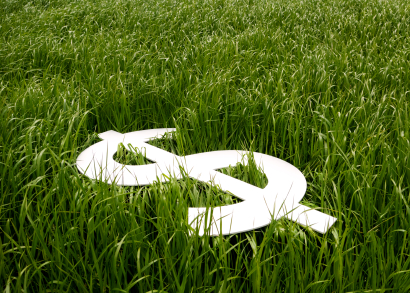Who contributes more to the local economy: hobby or conventional farmers? A groundbreaking study delivered the first findings this week.
More than 70 people heard first-hand from the researchers from the University of Melbourne/Agribusiness Gippsland/Mornington Peninsula Shire study at The Briars, Mt Martha. Four post-graduate students from the University of Melbourne’s school of business and management researched the topic, first suggested by Agribusiness Gippsland director and Kernot dairy farmer, Marie Trigg. Their main findings were:
|  |
- However, the average annual ongoing cost for hobby farmers was $153,286, while those of commercial farmers averaged $83,977.
- Approximately 83% of commercial farmers earn less than the average annual income while nearly 82% of hobby farmers earn less than the average income. This could be because hobby farmers invest more in terms of on-going farming cost and capital cost.
- Gross income, operating and capital expenditure and council rates per hectare are higher for hobby farms than for commercial farms.
- Higher rates are most probably linked to the higher Capital Improved Value of hobby farming properties.
- Both types of farmers need to pay for inputs: equipment, fencing, infrastructure, water catchment, livestock and revegetation. On bigger farms, these costs average out over a larger area and are lower.
- The spending figures suggest that because hobby farmers buy more equipment and spend more on operating their farms, they stimulate local demand and provide more employment opportunities for local community.
- Commercial farmers were found to contribute more in council rates due to their larger landholdings but the rate per hectare was lower than that of hobby farmers. However, in terms of return on investment, hobby farmers experience a higher rate of return on their rates.
The two-week study co-ordinated by Agribusiness Gippsland saw the four international students hosted by the Mornington Peninsula Shire and dairy farmers John and Sue Anderson of Bunyip Home Farm. “The group visited local farms and even got down into the milking shed to try their hand at draining the cows. It was as hands-on as we could make it,” said Agribusiness Gippsland chair Alex Arbuthnot AM. |
|
“The study quantified – for the first time – that hobby farmers increasingly are making a significant contribution to the social and economic well-being of the community and this research helps clarify the importance of the role they play.”
The study involved an anonymous data scan of Mornington Peninsular Shire’s rating base to calculate the rate contribution and service delivery for each group. It also involved some telephone surveys of contactors servicing farm properties in the shire. Lastly, an anonymous online survey to determine income and expenditure correlated with farm and off-farm activity attracted hundreds of responses.
“About 80% of these replies came from the south-east corner of Gippsland with the majority of these from the per-urban areas of south-east Victoria. However, we were staggered that the balance of replies came from as far afield as Canberra, southern NSW and Warrnambool. These add some research rigour to our findings,” Mr Arbuthnot said. “It also suggests how this issue is top-of-mind to many landowners.”
He noted that the researchers had some difficulties establishing economic activities and defining the two categories.
“We thank the rates department team of Mornington Shire, and Gillian Stewart the shire’s agribusiness officer, for their assistance. And we especially thank the Andersons who hosted the team for a week on their Bunyip farm,” he said.
The research team has already been invited to present their findings to the local Victorian Farmers’ Federation in late June. Researchers in three states have registered an interest in the results.
Download a complete copy of Comparing Economic Benefits between Commercial and Hobby Farmers.


